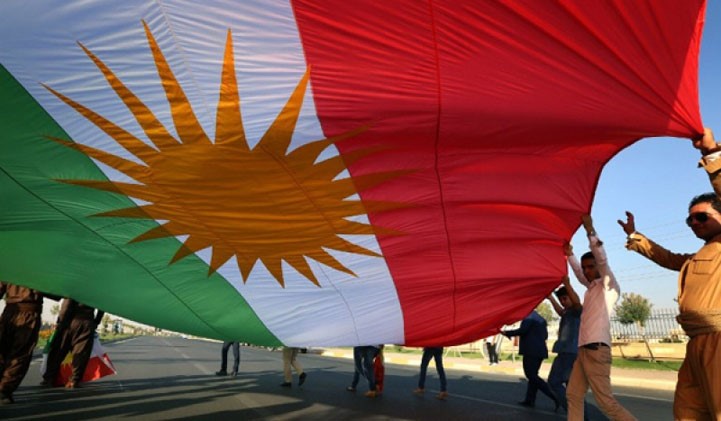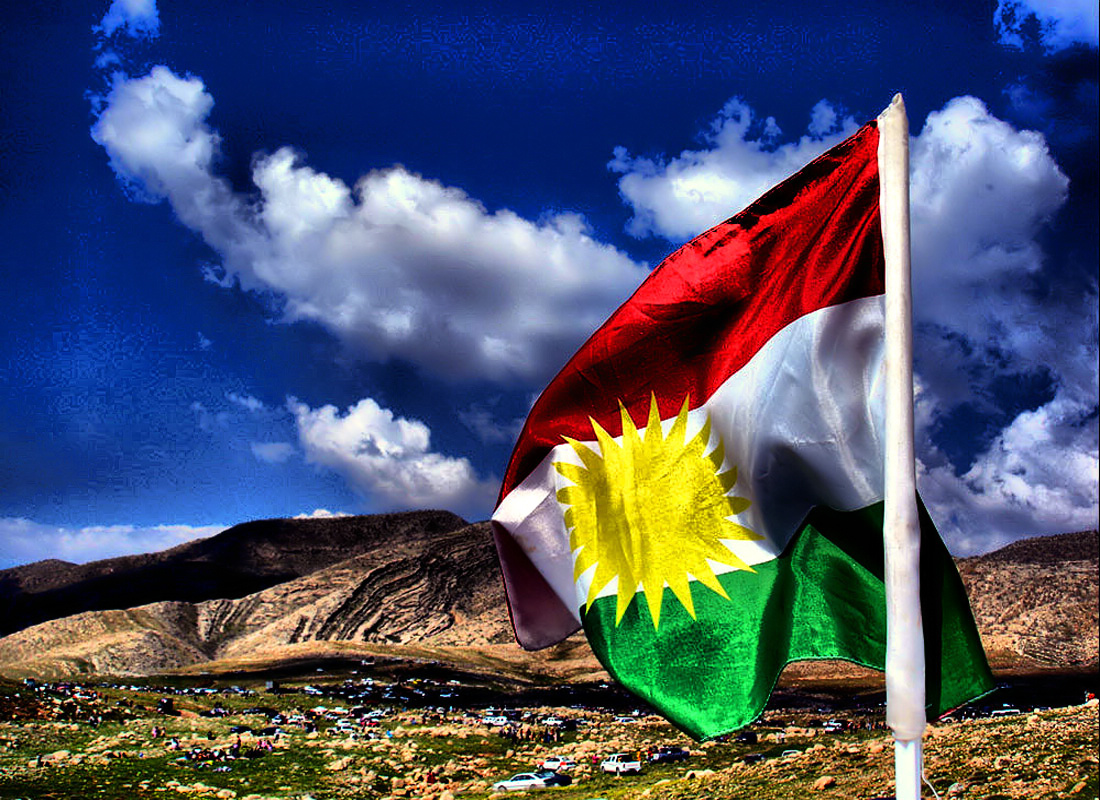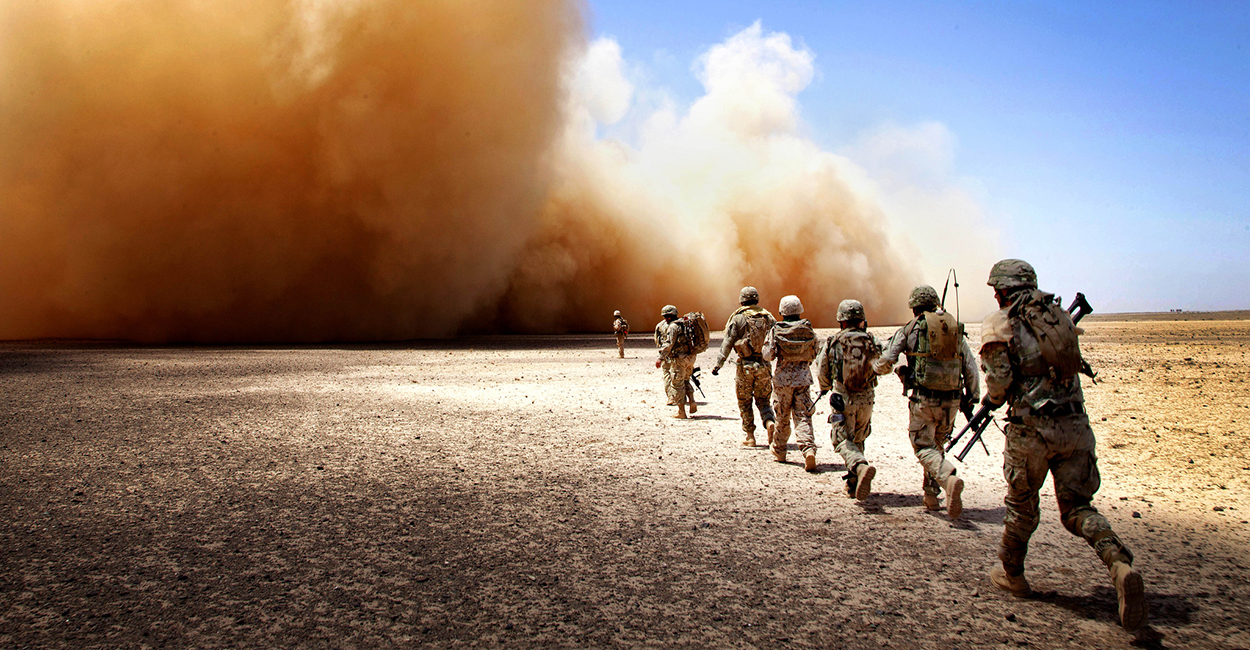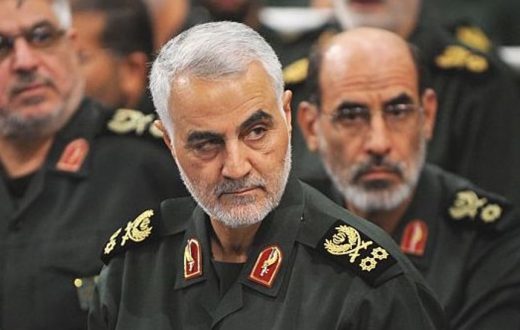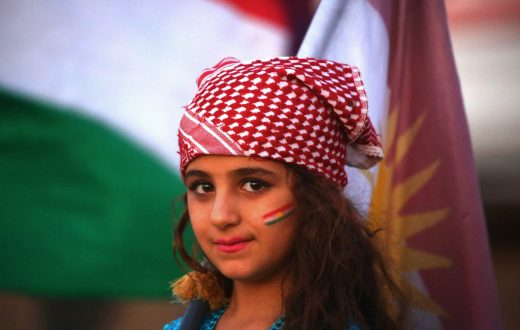The Kurds in Iraq and the two leading political parties in the Kurdistan region of Iraq, the PUK and the PDK (Patriotic Union and Democratic Party), are certain about holding a referendum in 2017 in response to the continuous calls for Kurdistan independence from Iraq. Kurdistan’s independence referendum, in 2017 or just after, is a unique and significant event in Iraq and the Middle East. It offers an important opportunity to discuss the aspirations of the Kurdish people, whether as an independent state or as a part of Iraq. Such a process cannot take place without considering how these aspirations will affect events in the Middle East, and a clear understanding of the region’s politics and Kurdish history in Iraq is necessary.
In 2014, the Kurds raised the referendum and independence issue, but the rise of ISIS led the Kurds to postpone the referendum and focus on controlling their areas and defending themselves. A result of the war between the Kurdish Peshmerga and ISIS is that the Kurds gained control of most the disputed areas, and they have become the de facto force in these areas; apparently, as the negotiations between Baghdad and the Erbil government couldn’t result in implementing article 140 of the Iraqi Constitution. The war against ISIS paved the way to implement this article. It is worth mentioning that the Kurds in Iraq gained their autonomy after the success of their uprising against Saddam Hussein in 1991 following the Gulf War, and they have been ruling the provinces (Erbil, Dahuk, Sulimaniah) since then. However, the so-called Operation of Iraqi Freedom in 2003 didn’t help the Kurds to gain full control of the other Kurdish populated areas apart from these three cities. Article 140 was originally made to solve the dispute between Iraq’s central government and the Kurdish regional government over the disputed areas, but the article was not seriously implemented.
In 2017, Kurdish president Masoud Barzani announced his intention again to call for a referendum on independence sometime in 2017. On the ground, Iraq as a country has been effectively partitioned between Arabs and Kurds. In the Arab region the Sunni and Shia population have been segregated and the Kurdish region is likewise subdivided between political parties. However, not only the two leading Kurdish parties, but also other Kurdish political entities announced their support in favor of unity and support for a referendum. The Kurdistan region is currently facing internal problems such as a financial crisis, the war against ISIS, and the parliament being non-active ever since the Speaker of Parliament Youssef Muhammad was deprived of practicing his post in October 2015 and has not been allowed to enter the parliament building in Erbil (the Capital of Kurdistan region) since then. However, the two political parties, particularly the PDK, don’t believe though that these problems will delay the referendum process.
At this stage, it’s believed that the referendum will be an easy process as it has fewer obstacles in comparison toprevious decades. In the past, the regional powers such as Turkey, Iran and Iraq would show no tolerance for referendums and independence, but currently Iran and Turkey are asserting that the referendum is a domestic issue among the Iraqis. Moreover, the Iraqi prime minister and other political parties are only showing discouragement for a Kurdistan referendum, and they are claiming that it’s not the time for referendum as Iraqi forces and Peshmarge are fighting ISIS. On the other the hand, Ammar al-Hakim (the Islamic Supreme Council leader of Iraq) claims that if the Kurds obtain independence only Israel would recognize the independence. Nevertheless, Barzani confirmed that the United Nations (UN) and the US will have a supporting role in the move.
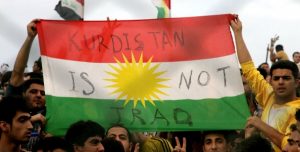
There are related and various arguments in favour of Kurdish calls for a referendum and independence. For example, Iraq as a state failed to take responsibility to protect (R2P) its citizens. One clear example was the catastrophe that took place in 2014 in Sinjar when 5000 Yazidi Kurds were kidnapped, enslaved and killed. The previous regime was much worse in treating Kurds. Saddam’s regime committed genocide against the Kurds during the Iranian-Iraqi War, resulting in the death of approximately 180,000 Kurds and demolishing 5,000 villages. The genocide campaign was under the direct supervision of Saddam’s cousin Ali Hassan al-Majid. He is also known as Chemical Ali for his role in bombarding Halabja in 1988 with chemical weapons, killing five thousand of the town’s inhabitants.
Kurds have faced identity discrimination in Iraq as Arabs are in the majority, and in the past, were perceived as second-class citizens. The Kurds had a crisis of identity. For most of the Kurdish population, it’s hard to recognize themselves as Iraqis not Kurdistanis. Moreover, as a result of what they experienced in the past, it’s hard for the Kurds to integrate themselves in a unified Iraq. The attempts to build a unified Iraq full of peace, social justice and mutual trust among its ethnic components has failed. In addition to that, Iraq has faced another ethnic cleansing wave due to war with ISIS. Meanwhile, Kurds fear the repetition of history. Throughout modern history, Iraq’s different governments have given promises to the Kurds when they were weak, but when a government was in a stronger position it would not keep its promise. This happened repeatedly in the 1960s, 1970s, and after 2003. Currently, the Iraqi policy is positive towards the Kurds because the prime minister’s cabinet is weak and fighting ISIS, but the future of Iraq may again be less than promising for the Kurds. Kurds being disappointed by the Iraqi government, intentions of political parties and politicians, the budget crisis, border disputes of the autonomous region, lack of commitment for implementing Article 140, reducing Kurds’ authority in Baghdad and their participation in the political process and Shias’ attempts to impose their opinions as a majority in Iraq and ignoring consensus are all causes that encourage Kurds to pursue their long dream of independence.
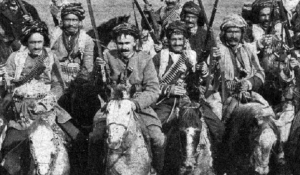
Domestically, Kurds look forward to starting to build a nation after building the state because internal, regional and international politics have prevented the Kurds from being united. The Kurdish issue is similar to the Palestine-Israel issue in being a factor contributing to the stability of the Middle East. These two issues are crucial in the Middle East, and consequently, Kurdistan independence will have regional and international implications. Starting with the Kurdish issue in Iraq, one main reason that led Iran and Iraq to sign the truce treaty of Algeria was to put an end to the Kurdish revolution in Iraq. As the two countries did not show a long commitment to the treaty, the Iran–Iraq war started in 1980 and lasted 8 years. Only 2 years later, Iraq conquered Kuwait leading to the first Gulf War. This war caused an uprising and internal instability in Iraq. Following the war, Kurds gained authority over their land, which was protected by a no-fly zone, decided on by the Security Council. Iraq has become under international sanctions, and therefore its regime reacted by supporting, or at least not showing a negative attitude towards, international terrorism, and this was a reason for the U.S to start the second Gulf War known as the ‘Operation of Iraq Freedom’. The U.S intervention in Iraq resulted in a pivotal change in Iraq. Sunnis have been marginalized by the Shia, and that was a main reason for Sunni support of terrorist groups in their areas, including ISIS.
Herein, we can say that solving the Kurdish issue would put an end to many problems in the Middle East, and the independence of Iraqi Kurdistan will be a beginning to solving the Kurdish issues in other countries. There are eight registered religions and ethnic minorities in Kurdistan region who live peacefully together. This could be a positive sample of co-existence and tolerance in the region. This can also motivate other countries in the region including Turkey to become a better sample of democracy as these the countries in the region have disappointed the world by their violation of human rights.
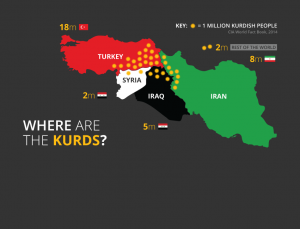
Internationally speaking, Kurds want fair participation in the international community. As they have helped the world in fighting terrorism, they are now seeking the world’s support to have independence. Moreover, this Kurdistan guarantees the stability of the Kurdistan region more than before. Finally, Kurds totally realize that a referendum is not without its risks, but this would not stop them to hold the referendum as they took risks before in the upraising of 1991 and the elections in 1992. Kurds are determined this time, and they don’t wish to wait until others give this right to them to start the referendum process.

